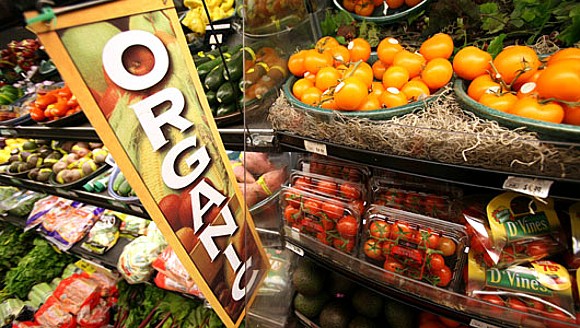Organic Produce From The U.S and Japan Now Has Equal Status With New Trade Agreement
 January 3, 2014
January 3, 2014  Kyriaki (Sandy) Venetis
Kyriaki (Sandy) Venetis If your New Year’s resolution was to start eating healthier, then a new agreement between the United States and Japan has just helped broaden your healthy eating options.
 Image courtesy of mnn.com.
Image courtesy of mnn.com.
The trade agreement, which went into effect on the first of the year, gives equal exchange status for organic produce between both countries.
The U.S. Department of Agriculture (USDA) said that the new agreement will streamline the trade process, reduce bureaucracy, and increase year-round access to more diverse organic produce for consumers in both countries.
The USDA said that prior to the equivalency agreement, organic farmers and businesses that wanted to sell products in either country had to obtain separate certifications to meet each country’s organic standards.
This typically meant two sets of fees, inspections, and paperwork. The new trade agreement reduces costs, providing more access for producers and more buying options for consumers.
The new equivalency agreement specifically relates to plant and fungi-based products. This agreement is only for products that were either produced within the U.S. or Japan, or products whose final processing or packaging occurred within either country.

For U.S. organic imports, the produce will be required to meet Japanese Agricultural Standards (JAS) for organic certification and meet all USDA organic labeling requirements (including compliant use of the USDA organic seal). Organic produce will also need to travel with a U.S. import certificate signed by a certified agent accredited by the USDA or Japanese government.
Likewise, for Japanese organic imports, the produce will need to be USDA organic certified and meet all Japanese organic labeling requirements (including compliant use of the JAS organic seal).
There are though some differences in this agreement. Non-JAS eligible products, such as meat, dairy, and alcoholic beverages that are certified organic by the USDA can still continue to enter the Japanese market as organic, but can’t use the JAS seal.

These products can still though display the USDA organic seal in Japan if they are compliant with USDA organic labeling requirements.
Another difference is that Japan does not have a labeling category for “made with” organic products, and only products with 95 percent or more organic content will be allowed to be labeled organic in Japan. Also products not certified as organic can’t be traded under this partnership.
Conversely, products that are not regulated by the JAS law can be sold as organic in the U.S. These products (which include dairy, meat, and alcoholic beverages) must still though be certified to USDA organic regulations by an accredited certifier.
The USDA said that, “Both parties are committed to ensuring that all traded organic produce meet the terms of the partnership, retaining their organic integrity from farm to market.”
According to the USDA, “The organic sector in the U.S. and Japan is valued at more than $36 billion combined, and rising every year.”
Reader comments and input are always welcomed!

Reader Comments